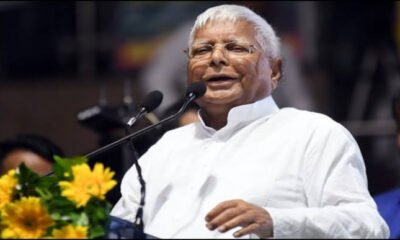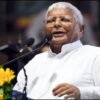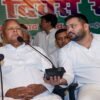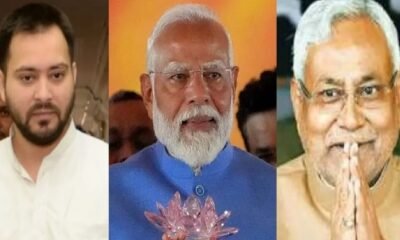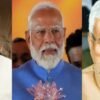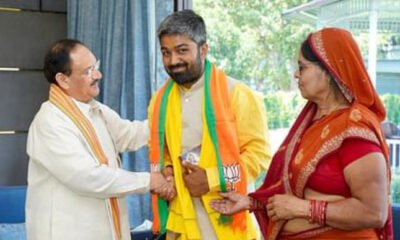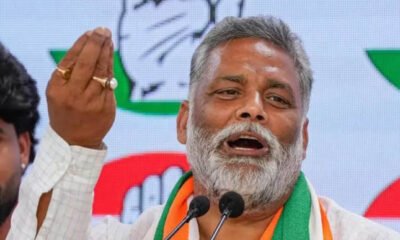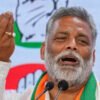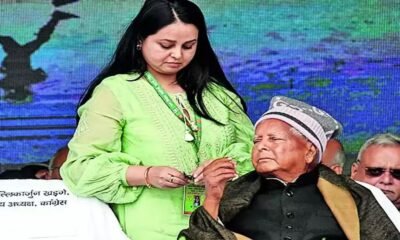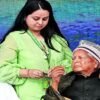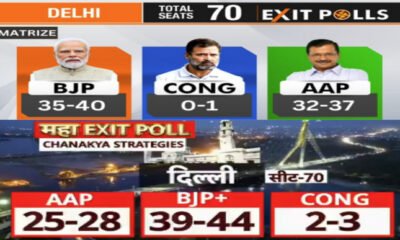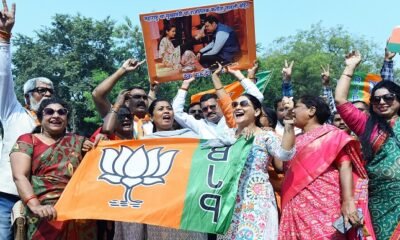Bihar
Book discussion on INDIA THAT IS BHARAT: Coloniality, Civilisation, Constitution
India, That Is Bharat, is the first book of a comprehensive trilogy. It explores the influence of European ‘colonial consciousness’, in particular its religious and racial roots, on Bharat as the successor state to the Indic civilisation and the origins of the Indian Constitution. It lays the foundation for its sequels by covering the period between the Age of Discovery, marked by Christopher Columbus’ expedition in 1492, and the reshaping of Bharat through a British-made constitution-the Government of India Act of 1919. This includes international developments leading to the founding of the League of Nations by Western powers that tangibly impacted this journey.
J Sai Deepak, the author of the book is not new to the limelight. He has argued some landmark cases often from the unpopular side of the debate including siding by the temple’s ritualistic right to deny women entry in the Sabarimala temple case In India, that is Bharat, Deepak explores the underpinnings of the idea of Bharat, by first travelling into history to excavate the corrosion of the idea, then as lawyers do, offering evidence of its sustenance and subsequently paving the way for a decolonised interpretation of the constitution.
To discuss more on the book, a session was organised by Policy Matrix, a New Delhi based think tank on 16th September 2021. The session was opened by Mr. Abhishek Ranjan, the founder director of Policy Matrix, who welcomed the speakers and introduced the moderator. The session was moderated by Shivendra Shandilya.
Putting forward his experience and motivation to write the book, J Sai Deepak said that he compiled the book to make it more relatable and to provide a conceptual framework which could explain whether as a descendant of a colonised society, we see ourselves through our own lens or through the lens of the colonisers. The book is a compilation of the existing literature so that it could reach beyond the academic audience. In this book, he tried to bring all three subjects under one book that is coloniality, civilisation and constitution. The events such as the CAA debate, the Ram Janmabhoomi judgement and the reaction to article 370 pushed him to write this book. This book is more or less an introductory work while the second part of the book will be the actual work.
To this, Utpal Kumar, who is the Executive Editor, The Sunday Guardian, added that Indians have hunger for history because they want to know who they are and who they were. This is the first time that a book that tells Indians that it is not just colonisation that has exploited us but also the civilisational intellectual means.
The session proceeded with the questions and answers.
To answer one of the questions on what decision a parent should take to protect Dharma at home, Sai Deepak opined that certain values must be taught even if the child is initially rebellious because parents have seen the world better and have experience which they are entitled to pass onto their children. Therefore, the family is the first line of defence and it is the family’s connection to the traditional institutions that provides extended lines of defence. But unfortunately, despite being in the Indic majority society, we do not have any line of defence outside state and state and education is not helping in this.
He further talked about his experience with two boys in Bengaluru, whose parents oppose their access to Indic education and culture and how they were unsure about how to deal with their family. He stressed the need to focus on the “Sanskritik Vikas “as much as we focus on the economic front.
Putting forward his argument, Sai Deepak said that there is a need for maximum investment in the field of scholarship and also dissemination of information which includes actual facts and history and not propaganda. Putting his remarks on social media, he said that it pushes us to sensationalism which is opposed to scholarship. There is a greater need to take up civilisational studies. He further suggested freeing temples from state control because temples can create a multiplier effect in terms of Indic knowledge and culture that the state has failed to do. Temples can play a significant role apart from dissemination of information.
In our civilization we had multiple ways of passing on knowledge of history through several ways by means of storytelling, Hari Katha, singing tradition etc. each of these traditions is meant to pass on information and knowledge from one generation to another. This has been one of the reasons why India has its own identity. These schools have kept our identity alive by words of mouth, Shrutis and Smritis. Concluding his remarks, he stressed the need for rejuvenating civilisational centres such as temples and also the importance of providing them with enough resources so that this could go a long way.
The session ended with a Vote of Thanks by Siddharth Ghosh, a PhD student at Mahatma Gandhi Central University, Motihari, Bihar.



